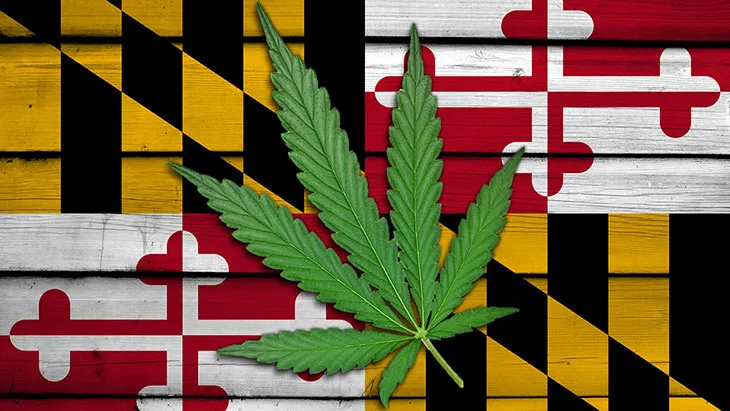On July 1, 2023, Maryland’s legalized recreational marijuana laws go into effect, allowing adults aged 21 and over to possess and use the drug. What the new law and its impact will be on the cannabis industry
Maryland Governor Larry Hogan has made history by signing a bill that legalizes recreational marijuana in the state. The Maryland General Assembly passed the bill earlier this year, and it allows adults aged 21 and over to possess and use up to 1 ounce of marijuana in public and up to 4 ounces in their homes. The legalization of recreational marijuana in Maryland is a significant step forward for the state and for the broader cannabis industry.
The new law also includes provisions for the expungement of past marijuana-related convictions, which is a critical component of social justice reform. The establishment of a regulatory framework for the cultivation, processing, and sale of marijuana products will help ensure that the industry operates safely and efficiently. Maryland joins a growing number of states that have legalized recreational marijuana in recent years, including neighboring Virginia and Washington D.C.
However, the new law does not go into effect until July 1, 2021, giving regulators time to establish rules and regulations for the industry. The Maryland Medical Cannabis Commission will oversee the implementation of the law, including the licensing of growers, processors, and dispensaries.
Proponents of the bill argue that legalizing marijuana will generate tax revenue and create jobs. According to a report from the Marijuana Policy Project, legalizing marijuana in Maryland could generate more than $57 million in tax revenue and create more than 5,400 jobs. These tax dollars could be used to fund education, healthcare, and other critical programs.
Opponents of the bill express concerns about public safety and the potential for increased drug use. However, studies have shown that legalization does not lead to an increase in overall drug use, and in some cases, can lead to a decrease in drug-related crime.
Despite the passage of the bill, marijuana remains illegal at the federal level, and the Biden administration has not indicated whether it will pursue enforcement against states that have legalized the drug. However, the federal government has taken steps to address some of the issues surrounding marijuana legalization, such as providing guidance to financial institutions on how to work with cannabis-related businesses.
The legalization of recreational marijuana in Maryland is an exciting development for the state and for the broader cannabis industry. As more states move towards legalization, the industry will continue to grow and evolve, creating new opportunities for entrepreneurs, investors, and consumers alike. The cannabis industry is poised for significant growth in the coming years, and Maryland is well-positioned to take advantage of this trend.



